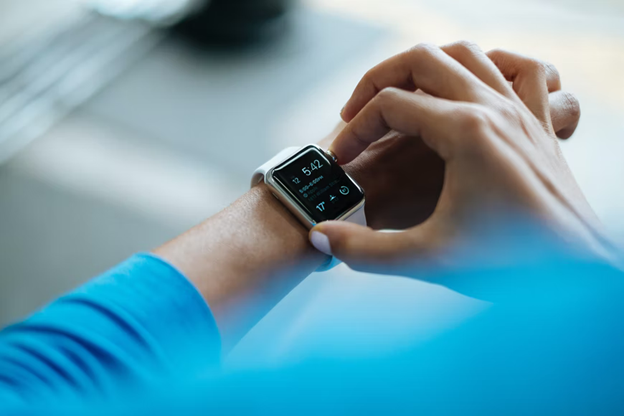Image from Unsplash
Telehealth and healthcare apps have rocketed in popularity since the pandemic. In 2019, just 11% of U.S. consumers used any form of telehealth. Now, around 46% of patients use some form of telehealth service to receive access to the healthcare they need.
By Indiana Lee
The widespread adoption of telehealth technology and apps should be celebrated in the medical community. Healthcare apps make it easier than ever to connect with patients and streamline processes that were inefficient and ineffective.
Healthcare apps can also improve the mental health of patients and professionals alike. Apps that collect data and store relevant information can help patients connect with their physicians to put their minds at ease. Effective apps can also reduce healthcare professionals’ stress levels, as functional apps make it easier for them to focus on more meaningful work.

Privacy and Comfort
Patients who use apps to receive care and connect with their providers may find that their healthcare experience is more comfortable and less stressful. That’s because healthcare apps are usually discreet and offer private alternatives for folks who don’t want to seek help publicly.
Healthcare apps that champion users’ privacy may also improve uptake and improve public health. For example, many women now use birth control apps to take control of their lives and avoid unwanted pregnancies. Healthcare apps like Natural Cycles aren’t for everyone, as fertility-awareness methods have a 24% failure rate. Nonetheless, they do a great job of giving women autonomy over their fertility cycle through discreet design and constant access to data.
Healthcare apps can also provide private consultations to folks who don’t want to visit a doctor's office. Immunocompromised groups and patients who live in rural areas stand to benefit the most from private, easy-to-access telehealth. Being able to sign on to an app and see a physician may reduce the chance of further illnesses developing and ensure that everyone can access their provider when they need to.
Access to Mental Health Services
The pandemic caused a mental health crisis across the globe. The World Health Organization (WHO) recently reported a 25% rise in anxiety and depression globally as people incurred great stress and faced gaps in healthcare equity.
Healthcare apps that offer mental health services may be able to close the care gap and provide users with the support they need. Mental health apps like TalkSpace and BetterHealth give users a chance to connect with licensed therapists at times that suit them. This could improve the uptake of therapy and help folks overcome the challenges they face in the post-pandemic world.
Mental health apps are particularly well positioned to help young people and vulnerable populations. Health care apps that platform therapists are usually low-cost and offer interactive sessions with a therapist. After a consultation ends, patients can continue to use the app to track their well-being and record changes in their condition.
Greater Autonomy
Healthcare apps give users the ability to make appointments, assess their progress, interact with health data and receive remote care. This gives users greater control over their healthcare and may help patients overcome medical anxiety.
Medical anxiety is commonly caused by a fear of hospitals and doctor’s offices. Some people associate healthcare with invasive treatments and a loss of bodily autonomy. One of the best ways to alleviate these fears is to give patients greater autonomy over the care they receive.
When using a healthcare app, users can progress at their own pace and avoid in-person interactions that may cause undue stress. Over time, using healthcare apps may even alleviate phobias like Iatrophobia. Iatrophobia — fear of doctors — usually occurs when patients have a bad experience with a healthcare professional. Using an app as an intermediary may help patients maintain their boundaries while ensuring they get the healthcare they need.
IoMT and Patient Care
Healthcare apps are great for patients who suffer from medical anxiety or live busy lifestyles. This makes it easier for physicians to gather patient data and connect with their patients on time. In turn, this reduces the stress that healthcare professionals face, as their jobs are made easier by healthcare apps that utilize the Internet of Medical Things (IoMT).
The IoMT was particularly important for healthcare professionals during the height of the pandemic. Healthcare apps that effectively leveraged the IoMT protected healthcare employees by encouraging remote patient monitoring and tracking outbreaks. This reduced transmission rates in hospitals and gave healthcare professionals the ability to request resources like PPE in real time.
As we exit the pandemic, the IoMT continues to promote professionals' mental health by reducing burnout and improving engagement and satisfaction. Healthcare workers who use IoMT-integrated apps can provide a better patient experience and manage existing patients more effectively. This allows medical professionals to focus more of their attention on providing high-quality care, as they don’t have to work through complicated, poorly designed electronic healthcare records.

Conclusion
Healthcare apps have grown in popularity since the start of the pandemic. These apps are more than just gimmicks and can make a meaningful difference to patients and healthcare professionals alike. Mental health apps help people get the help they need, and apps that leverage the IoMT give providers and patients access to important data in real time.
Pharmaceutical Microbiology Resources (http://www.pharmamicroresources.com/)



No comments:
Post a Comment
Pharmaceutical Microbiology Resources